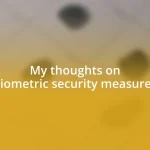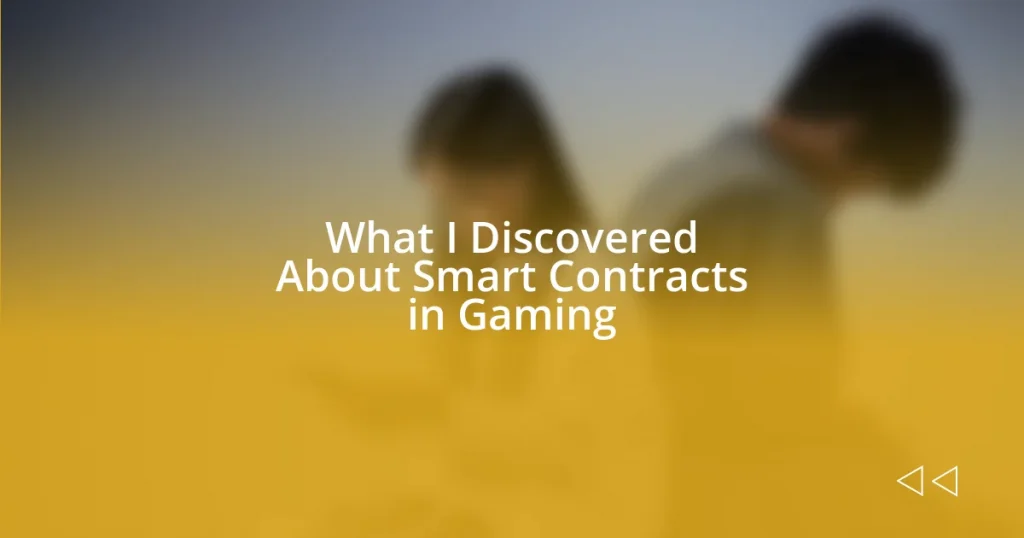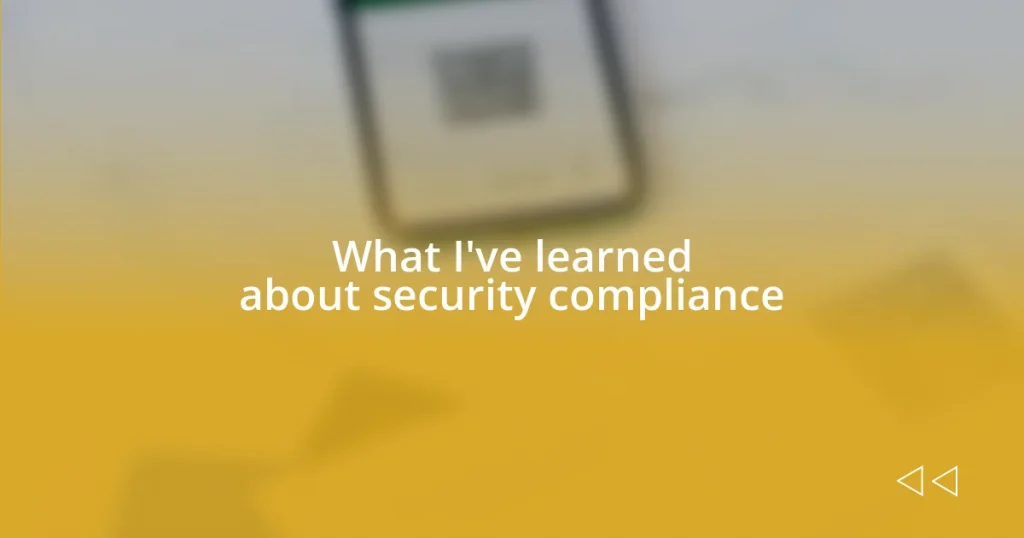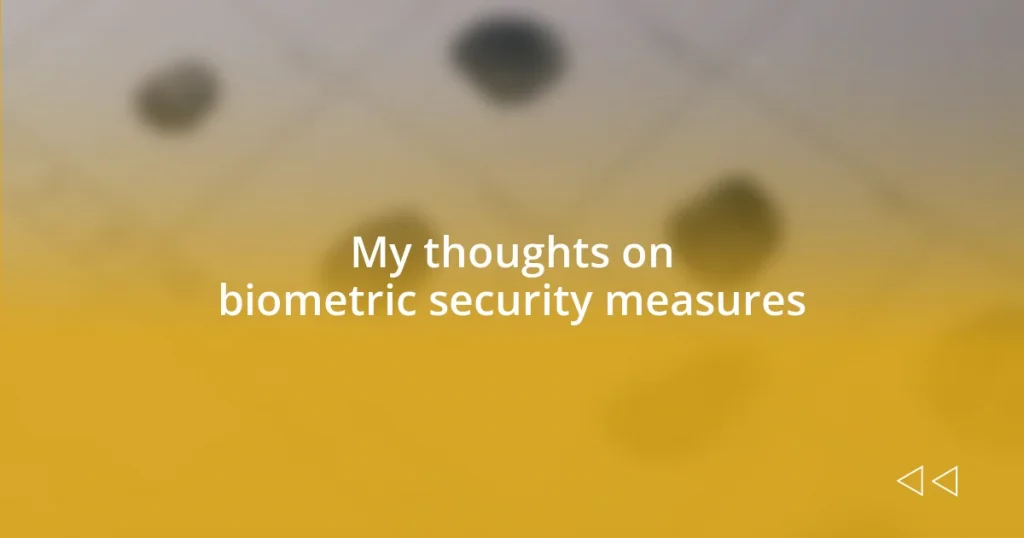Key takeaways:
- Smart contracts automate processes in gaming, enhancing security and player experience while allowing developers to focus on creativity.
- Challenges like code complexity, immutability, and scalability can hinder the implementation and effectiveness of smart contracts in games.
- Future trends include AI integration for adaptive contracts, cross-platform interoperability for asset exchange, and decentralized governance allowing player participation in game evolution.
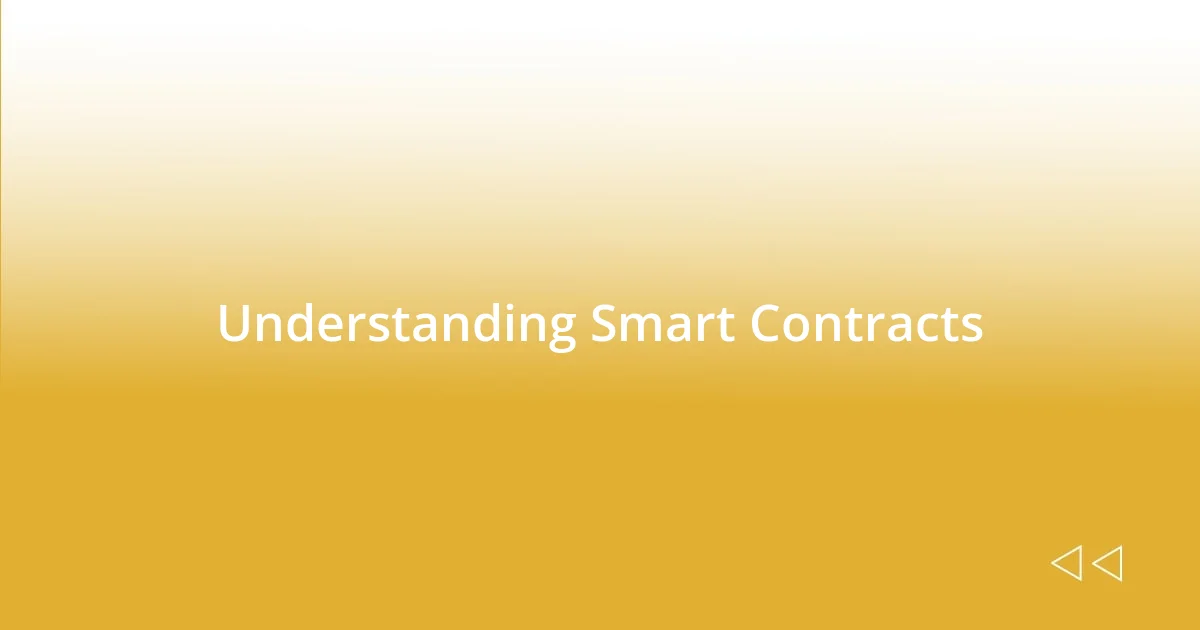
Understanding Smart Contracts
Smart contracts are self-executing agreements with the terms of the contract directly written into code. I remember the first time I came across this concept while exploring blockchain technology. It struck me how these digital agreements operate autonomously, eliminating the need for intermediaries and making transactions more efficient.
Imagine playing a game where every achievement triggers an automatic reward, all managed through a smart contract. This level of automation fascinates me! It’s a game-changer; it not only reduces the potential for fraud but also allows for a seamless gaming experience. Wouldn’t it be incredible if all interactions in gaming were as straightforward?
However, as powerful as smart contracts are, they come with their own set of challenges. Bugs in the code can lead to significant vulnerabilities. Reflecting on this, I wonder how developers can balance innovation with security. It feels crucial to remember that, although technology can simplify processes, a thorough understanding of its intricacies remains essential.

Key Benefits for Game Developers
When I first delved into the benefits of smart contracts for game developers, I was genuinely surprised by the level of control they provide. Imagine having the power to customize in-game economies where every transaction is not just secure but also automated! It’s exciting to think about how developers can implement rewards mechanisms or content unlocks without manual oversight.
Here are some key benefits for game developers:
- Enhanced Security: Smart contracts reduce the risk of hacking and fraud, as transactions are transparent and immutable.
- Automation of Processes: Developers can automate various aspects, from payments to in-game assets transfers, minimizing manual effort.
- Lower Costs: By reducing reliance on intermediaries, developers can save costs associated with payment processing and transaction fees.
- Trust and Transparency: Players can trust that actions recorded on the blockchain are accurate and tamper-proof, leading to a better gaming experience.
- Creativity in Design: Developers can create new types of gameplay experiences, like player-driven economies or decentralized ownership of in-game assets.
Reflecting on this, I recall a conversation I had with a fellow developer who was struggling with managing in-game rewards. She felt overwhelmed by the logistics and potential for errors. By integrating smart contracts, she could have reduced her workload significantly, allowing her to focus on crafting engaging narratives instead. It’s moments like these that highlight how smart contracts could not only streamline development but also unleash creativity.

Challenges and Limitations to Consider
As I reflect on the challenges surrounding smart contracts, code complexity stands out prominently. Creating smart contracts requires not just programming skills, but a deep understanding of blockchain technology. I once tried to write a simple contract for a game feature, and the syntax errors were relentless! It taught me that a small mistake can result in a significant security flaw, making thorough testing essential before deployment.
Another limitation that often goes unnoticed is the immutability of smart contracts. Once deployed, changing the contract can be nearly impossible without creating a new version, which could confuse players and developers alike. I remember discussing this with a friend who runs a gaming startup. She was hesitant to adopt smart contracts because she worried about being locked in by design choices. The fear of mistakes in a fast-paced gaming environment is real, and it’s something that all developers must grapple with.
Lastly, there’s the matter of scalability. While smart contracts promise efficiency, high network congestion can slow down transactions and lead to frustration among players. I experienced this firsthand during a gaming event where everything was hyped up. The excitement was palpable, but as transactions lagged, it turned into disappointment. Understanding these limitations can help developers create better user experiences, yet it often feels like walking a tightrope between innovation and practicality.
| Challenge | Description |
|---|---|
| Code Complexity | Requires advanced programming skills and a thorough understanding of blockchain. |
| Immutability | Once deployed, changes to the contract are difficult, causing potential confusion. |
| Scalability | High congestion can lead to slow transactions, affecting user experience. |

Future Trends in Gaming Contracts
As I look into the future of gaming contracts, one trend that stands out is the integration of artificial intelligence (AI) with smart contracts. Imagine an AI-managed system within a game where contracts automatically adapt to player behaviors, refining the gaming experience in real time. For instance, I once played a game that struggled to balance rewards based on player engagement. If it had leveraged AI with smart contracts, it could have dynamically adjusted incentives, keeping everyone more invested and satisfied. Isn’t it fascinating to think about how such technologies could revolutionize player interaction?
Another key trend I’m excited about is the rise of cross-platform smart contracts. As gaming ecosystems become increasingly interconnected, the ability for one game’s assets or contracts to interact with another’s could open up endless possibilities. I recall feeling the thrill of trading rare items in one game only to find they’re incompatible with another. With smart contracts facilitating interoperability, players might seamlessly transfer or trade assets across different games, leading to more robust player-driven economies. Wouldn’t that make us feel more connected to a wider gaming community?
Lastly, the shift toward decentralized governance is something that piques my interest. In essence, players could have a say in how games evolve by participating in decision-making processes through smart contracts. Last week, I joined a community voting session about the future updates for a game I adore. The idea of implementing a transparent voting mechanism through blockchain could elevate this experience to new heights. Wouldn’t you feel more invested knowing your voice could actually shape the game you love? This future direction speaks to a growing trend in empowering communities and fostering collaboration.


